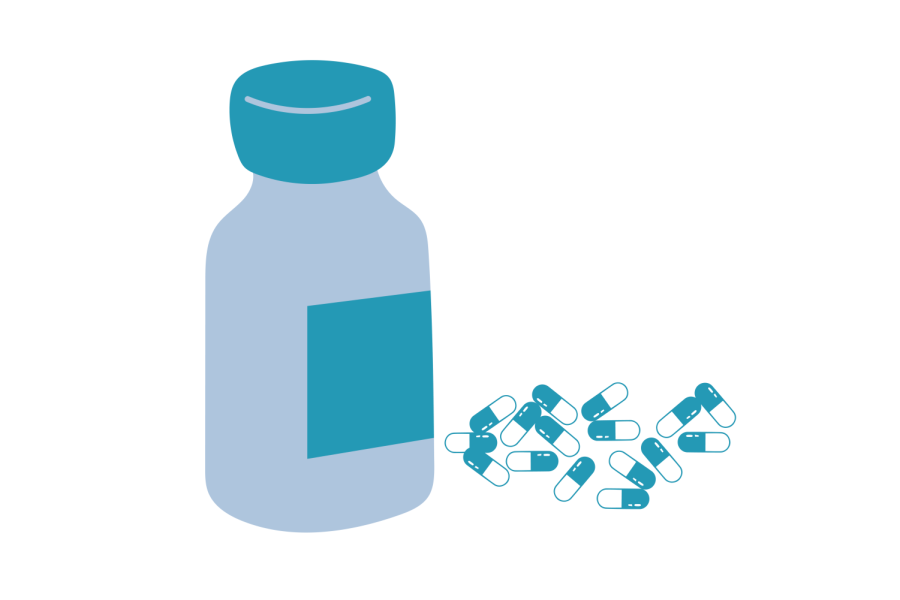“Do these people actually think they’re getting any money?”
On Oct. 12, Alex Jones was defiant. He had just been found liable for nearly a billion dollars in damages in a default judgment after being sued by families of mass shooting victims for falsely claiming the massacre in which their loved ones died was a hoax.
Jones is probably right that he doesn’t have a billion dollars. But he’s got quite a bit. According to testimony from a financial expert, he and his company are worth $135–270 million. And, according to court documents, the Infowars store made $165 million from 2015–2018 by selling dietary supplements, prepper gear and other items.
Jones’s supplements have bombastic names and prices to match. Think “Super Male Vitality” ($34.95), “Alpha Power” ($41.95), “Survival Shield X-3” ($19.95) or “DNA Force Plus” ($74.95).
In 2017, BuzzFeed News sent several of Jones’s supplements to a lab. They mostly contained the same ingredients they advertised, although the marketing for some supplements made misleading claims. For instance, most of the listed ingredients in a supplement called “Joint Formula” had no scientific basis for helping joint health. Plus, many of the supplements were wildly overpriced and could be found in stores for much cheaper.
In the realm of label accuracy, Jones might actually be outperforming the competition. In a study published in August in the journal JAMA Network Open, researchers found 17 out of 30 immune supplements they bought from Amazon had inaccurate labels.

On the other hand, many supplement vendors are perfectly reputable. Richard Kingston is a professor at the University of Minnesota College of Pharmacy and has consulted for supplement companies as well as other industries. He is the president of SafetyCall, a company that helps clients in adverse event reporting like dealing with medical side effects.
Kingston said he’s worked with supplement companies that are well respected by doctors and pharmacists. “If you look at the actual safety profile of dietary supplements … it’s probably one of the safest classes of products in the marketplace,” he said.
However, Kingston said existing regulations around supplements are not enforced adequately. “The biggest problem that I see that we’ve got is … that there’s simply not enough enforcement of the existing regulations,” he said.
According to Ralph Hall, professor emeritus at the University’s law school, supplements are subject to several types of regulation. This involves both the Food and Drug Administration, which also regulates over-the-counter (OTC) and prescription medications, as well as the Federal Trade Commission, which is also responsible for regulating businesses in other industries.
Lisa Harnack is a professor in the University’s School of Public Health and directs the Nutrition Coordinating Center. She said while supplement manufacturers cannot claim their product treats or prevents a specific condition, they are allowed to make what are called structure/function claims. For instance, they couldn’t claim their supplement reduces blood pressure, but they could say it improves blood circulation.
“It’s pretty easy for manufacturers to indicate what they’re intending for the product to do without outright saying it,” she said.
Harnack also said because of the number of products on the market and the limitations of the FDA’s resources, it is difficult to monitor false claims.
According to Harnack, manufacturers “do not need to prove the product is safe before putting it in the marketplace.” However, there are certain ingredients the FDA has banned because they definitely aren’t safe, like the stimulant ephedra.
In comparison to over-the-counter medications, regulation of supplements is lax, Harnack said. OTC meds “have standards around proof of safety and efficacy before putting [them] in the marketplace,” she said. Additionally, OTC meds have standards around purity and ensuring they contain the listed ingredients.
Harnack said she would like to see some changes not in enforcement, but in the actual regulations themselves. She suggested certain amounts of substances that are known to be safe should be allowed without pre-approval, but manufacturers of other substances should have to prove they are safe and effective before going to market.
Kingston disagreed. While he expressed support for additional enforcement, he didn’t think new laws were necessary. He said issues like pre-approval “are already covered in the current laws, whether it be the Dietary Supplement Health Education Act or the subsequent additions to it.”
Kingston said some OTC drugs were grandfathered in, and therefore never approved by the FDA. He said many supplement ingredients were grandfathered in in a similar way, while new ingredients actually do have to go through a pre-approval process.
To make determinations about whether supplements are safe, first we need good data on them. Kingston’s company works on this, as do Rui Zhang and Rubina Rizvi of the University’s medical school. They said many existing datasets, including those created by the government, are not adequate. They’re using artificial intelligence to analyze data from multiple sources, and they hope to create a chat bot that can answer consumers’ questions about whether particular supplements are right for them.
While Harnack and Kingston disagree about what exactly is needed, they both suggested something needs to change, whether that’s beefed-up enforcement of existing rules or creating stronger ones.
In the meantime, how can we tell if a supplement is safe and effective?
Harnack suggested using Operation Supplement Safety, a resource created by the military to help service members get the facts about supplements. Kingston said he has worked with the military to help them make sure service members receive appropriate supplements.
Kingston suggested people look into the American Botanical Council, where he was previously on the board of directors.
“They’re an education-based organization [who] share factual scientific information related to herbs and other botanicals,” he said. Additionally, Kingston said searching for an ingredient in PubMed, a database of scientific papers, could be useful.
Supplements can be helpful. But be sure to do your research first.















